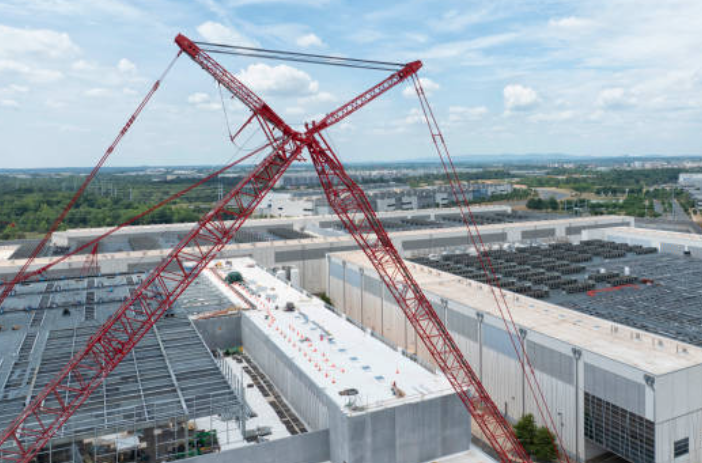
Posted on Friday, September 27, 2024
Roll forming machines play a pivotal role in modern commercial construction by producing essential components that ensure the strength, durability, and efficiency of large-scale buildings. These machines allow for the continuous production of high-quality metal parts that are critical to various aspects of commercial construction, including structural decking, roofing systems, curtain walls, and steel framing. Below are key applications where roll forming technology significantly impacts the commercial construction industry.
Roll forming machines are instrumental in producing structural steel decking, which is used as a base for concrete floors in multi-story buildings. The precision of roll forming ensures that decking profiles are manufactured to exacting standards, providing a robust foundation that supports heavy loads while minimizing material use. Steel decking also contributes to the overall fire resistance and sound insulation of a building, making it an essential component in commercial construction projects.
In commercial buildings, durable and energy-efficient roofing systems are a priority. Roll forming machines create roofing profiles like trapezoidal sheets, standing seam panels, and corrugated panels that offer superior weather resistance and thermal performance. These metal roofs not only protect buildings from the elements but also contribute to the energy efficiency of the structure, reducing heating and cooling costs over time. The precision of roll forming ensures that roofing panels fit seamlessly, improving installation speed and reducing waste.
Curtain walls, the non-structural outer coverings of commercial buildings, are often made from lightweight yet strong metal profiles produced by roll forming machines. These walls are designed to protect the building from external environmental factors while allowing natural light to enter. Roll forming machines can produce the intricate profiles needed for curtain wall systems, ensuring that they meet aesthetic, performance, and safety standards. Properly formed curtain wall components contribute to the energy efficiency and structural integrity of commercial buildings.
Steel framing is another key application of roll forming technology in commercial construction. Roll forming machines produce precise components such as studs, joists, and purlins used in framing systems. These components are essential for supporting the weight of commercial structures and distributing loads evenly. The precision and speed of roll forming help manufacturers meet tight construction schedules while ensuring that each component meets strict safety and quality standards. Steel framing systems produced through roll forming contribute to the overall durability and longevity of commercial buildings.
One of the key advantages of roll forming machines is their ability to produce metal components with a high degree of precision. This precision is vital for commercial construction, where safety, durability, and energy efficiency are paramount. Components like structural decking, roofing panels, and steel framing elements must meet stringent building codes and perform reliably under stress. Roll forming machines are designed to maintain tight tolerances, ensuring that each part is consistent in shape, size, and strength.
In addition, precision roll forming contributes to the energy efficiency of commercial buildings. Properly formed metal components can create airtight seals, reducing thermal bridging and minimizing energy loss. As sustainability becomes a priority in construction, roll forming machines allow manufacturers to create building materials that help meet green building standards and reduce the overall carbon footprint of a project.
In the commercial construction industry, roll forming machines are indispensable for producing key structural components like decking, roofing, curtain walls, and steel framing. Their precision and efficiency ensure that buildings are constructed quickly and meet high standards for safety, durability, and energy performance. As commercial construction continues to evolve, the role of roll forming technology will only become more critical in shaping the future of sustainable, resilient structures.

Used Purlin Roll Forming Machines for Sale Worldwide
Posted on Sunday, January 25, 2026
Pre-Owned Roll Forming Machines for Purlin & Structural Steel Profiles

Used Roof Panel Roll Forming Machines for Sale Worldwide
Posted on Sunday, January 25, 2026
Pre-Owned Roll Forming Machines for Roofing Panel Production

Used Roll Forming Machines for Sale Worldwide
Posted on Tuesday, January 20, 2026
Pre-Owned Roll Forming Machines with Inspection, Verification & Global Support

Steel Coil Supply for Roll Forming Machines Worldwide
Posted on Tuesday, January 20, 2026
Reliable Steel Coil Supply for Roll Forming, Fabrication & Manufacturing Applications
Copyright 2026 © Machine Matcher.